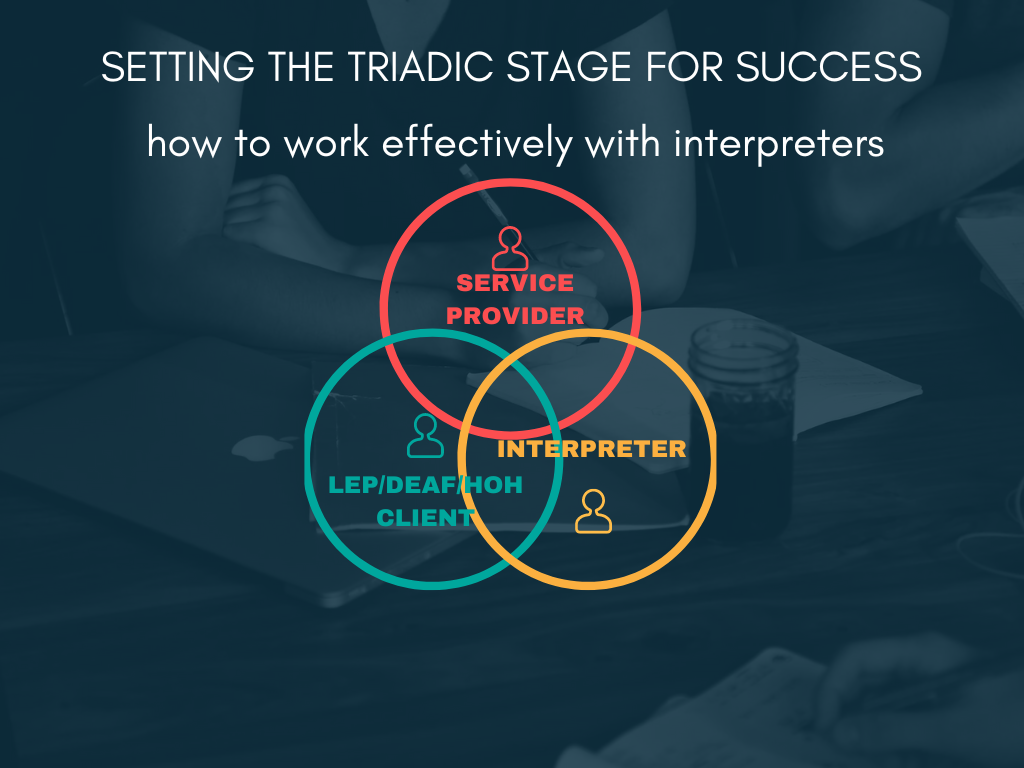
Working with interpreters effectively will help healthcare providers who will be in contact with patients who are Deaf or Hard of Hearing or who have Limited English Proficiency and will need a face–to–face, video remote or telephonic interpreter/relay service to communicate effectively. The course briefly introduces the fundamentals for working with interpreters, the role and purpose of a qualified healthcare interpreter, the linguistic nuances of interpreting, the challenges of interpreting in mental health, and the standards of ethics of healthcare interpreters. It addition it provides suggested guidelines on working with qualified interpreters and how to properly guide ad hoc interpreters when a qualified interpreter is not immediately available.
Working with interpreters Course Objectives:
By the end of this 4-hour course, participants will be able to have a better understanding of:
- Benefits of using qualified vs. ad–hoc healthcare interpreters
- Nuances of interpretation vs. bilingual skills
- Insights and guidelines of standards, protocols and effective behavior of interpreters
- Nuances of Interpreting and Mental Health
- How to properly work with qualified interpreters
- How to properly guide ad–hoc interpreters
If you are interested in setting up this presentation for your organization, contact Traininglounge@reach-diversity.com
If interested in Diversity, Equity and Inclusion, check out our DEI training!